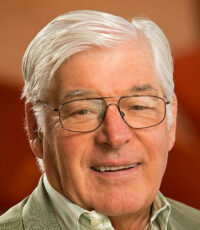In a unanimous vote, last week the Sonoma City Council – after nearly 16 months of drafts and re-drafts – has finally passed, with minor revisions, a mobilehome park conversion ordinance. “Believe me,” said City Attorney Tom Curry, “I do not recall an ordinance in the last 35 years I’ve reviewed as much as this one.”
Despite continued objections from mobilehome park owner Preston Cook and a letter challenging the legality of the ordinance by Cook’s attorneys, Curry said at the Sept. 3 council meeting that he disagrees with their legal opinion and believes the ordinance is defensible. Public comment was minimal. Sam DiGiacomo of Pueblo Serena Mobilehome Park urged the council to pass the ordinance. Rancho De Sonoma resident Nancy Courtney pointed out that hardly any residents are going to be able to afford this conversion. Cook said, as he has said repeatedly before the council, that he opposes the draft ordinance and the city’s efforts to prohibit him exercising his rights under state law.
Certain definitions remained, to some, unclear. Dean Moser, representing Pueblo Serena, questioned the issue of the lifetime lease. “The homeowner should be a resident,” he said. “It should be a resident homeowner, and that homeowner should be a resident for that period.” He said he wanted the council to understand that the lifetime lease applies to a homeowner who can then rent that property. Mayor Joanne Sanders questioned whether subletting a mobilehome would not violate the spirit of rent control, which is about maintaining the availability of a certain type of housing in the community. Councilmember Steve Barbose suggested a hypothetical case of an elderly homeowner who has a lease for life. “Let’s say that person goes to a rest home. Shouldn’t they be able to rent this thing out for the duration of their life to help them get by?” Councilmember Sebastiani agreed. “I don’t know where windfall profits became that naughty of a thing,” he said. “In case of medical costs, this could be an opportunity.” Sanders nodded. “I’m certainly not opposed to that.” Curry explained the ordinance wording. “The reason we drafted it that way, we were making an assumption that this type of housing, whether owned or rented, provided a source of housing for the community.” Councilmember Stanley Cohen summed up the issue saying, “Once this is converted, it’s really out of our hands.” Staff made two minor, editorial changes to the draft for additional clarity.
The second reading and final adoption of the ordinance is scheduled for Sept. 17.
Council passes mobilehome ordinance
More from What's HappeningMore posts in What's Happening »
- Cartoon by Hillary: “Finally We Do Thanksgiving…My Way”
- Permit Sonoma Recommends Decertification of the SDC Specific Plan Environmental Report and Abandoning the SDC Specific Plan
- Chinook Salmon Spotted in Valley Creeks
- Lighted Tractor Parade Set for November 30 on Sonoma Plaza
- Creative Sonoma Announces #TeachTheArts Campaign to Boost Local Teaching Workforce
- The Living Legacy of Mac McQuown






